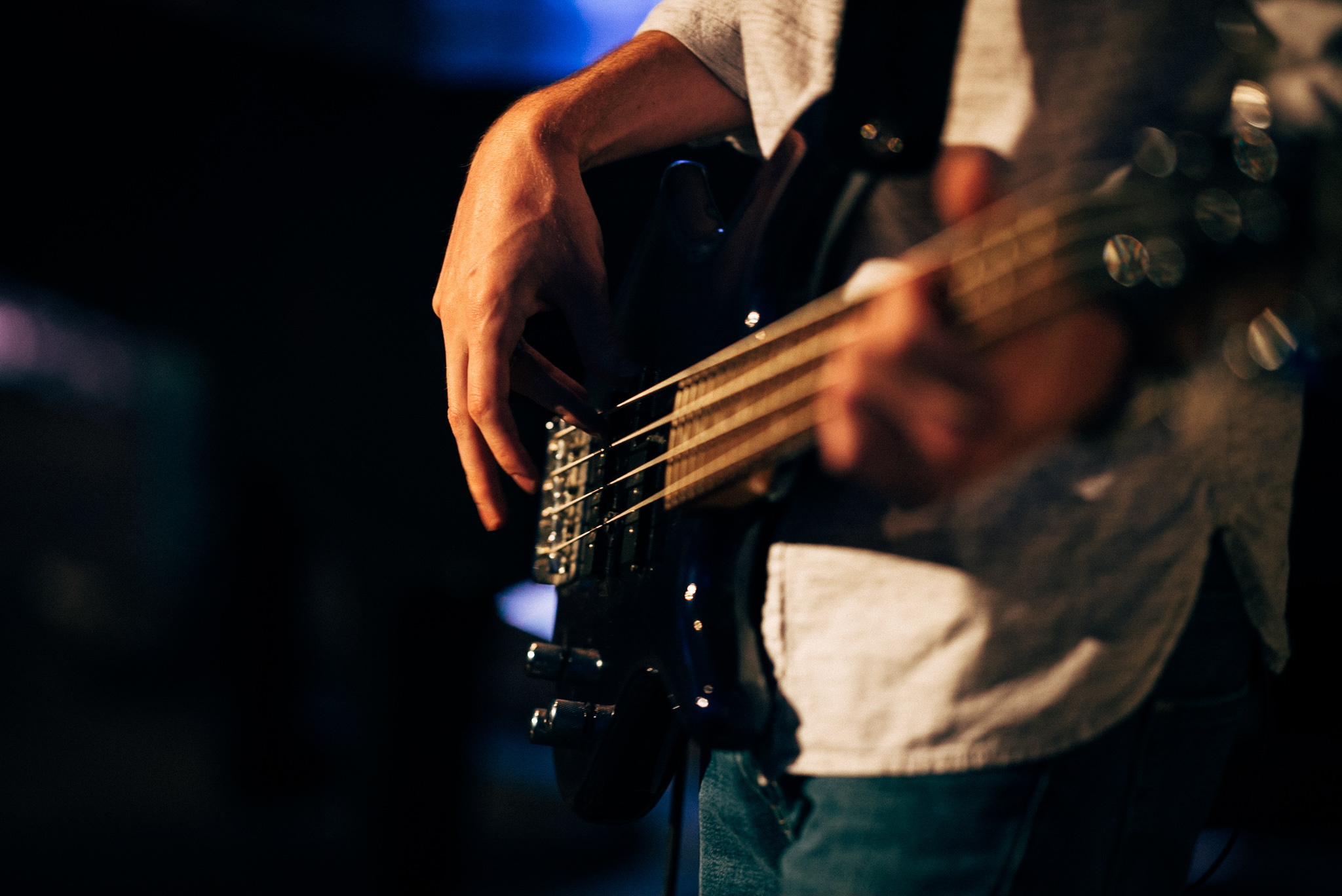You’re the Glue!
The impact you make on how the band comes together is easy to under appreciate, but it is essential to being musically whole. The dynamics and feel that you add bring the melodic, harmonic and rhythmic elements together in a way that no other instrument can. Any instrument that is not locked in, rhythmically or harmonically, can have a domino effect on the other instruments which can cripple a song’s effectiveness, and bass has that power in spades. What you play, and maybe even more so how you play it, confident versus tentative (even the simple parts), really does limit or expand how powerful a song can be. You are vital! You’re the glue!
Always Be Engaged
Be engaged with the song, not just your instrument or your part. You always need to be connected to the tone and dynamics of the song you’re supporting. This includes moments when you’re not playing. If you are fully engaged with a song from start to finish, it will be much more natural and intuitive to play with conviction and with appropriate intensity. It’s easy to mentally tune out until your instrument is introduced, but it is an important discipline to stay focused at all times. One of the easiest ways to improve this skill takes place before you ever get to the stage on Sunday – preparation. The more prepared you are, the more relaxed you are, and the more mental energy you have available to collaborate musically instead of just playing the chords. It’s hard to land a convincing and effective low note that announces a dynamic shift if you are tentative and unsure about what’s coming. Being a little behind the beat in those moments is something the band and congregation will feel, even if they can’t point out why, and it can deflate the dynamic progress of a song and cause confusion among your band-mates.
Be Prepared
Sunday morning is a time to work out the details and challenges of bringing the individual parts together to create something musical and cohesive that leads people into worship without distraction. You will not be able to fully participate in this process if you are still learning the chords or relying on the chart to figure things out. The chart is helpful as a guide and reference, but it can’t be your sole means of knowing what to play. Knowing both the chords and song structure before Sunday morning is critical. Achieving the next level means having a good feel for the full arrangement and all the pieces involved. Do you know the song, or just your part? This doesn’t mean that you need to understand what is happening technically on the other instruments, but you should at least have a feel for the roles they are playing in different sections of a given song.
As a bass player, not only do you need to bring confidence in a role that, often times, is not very glamorous, but you also have to come prepared to play at the level and add the depth required for each song. Know your notes — not only the ones that pound in people’s chests, but also the ones that fade in the background, both of equal importance. Being a bass player means being the foundation. Let your performance reflect your preparation. And let you preparation reflect knowledge, discernment, and skill.

